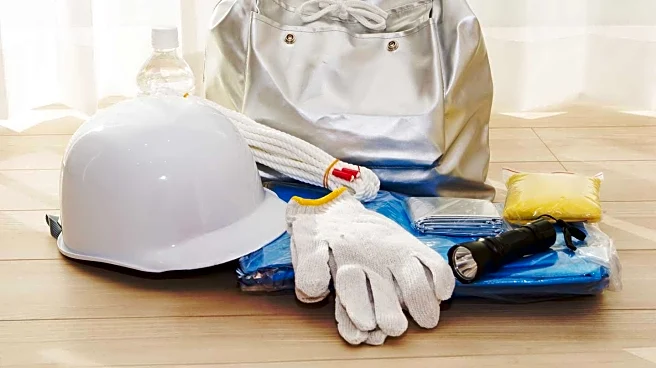What's Happening?
HuffPost has published an article emphasizing the importance of owning emergency supplies that go beyond the typical batteries and flashlights. The article highlights products such as the Jackery Explorer
1000, a portable power station with multiple outlets and ports, designed to keep devices charged during power outages. The product is praised for its longevity, smart app control, and compact design, making it suitable for emergencies. The article includes a testimonial from a user who found the power station invaluable during a storm-induced power outage, particularly for maintaining the functionality of a CPAP machine.
Why It's Important?
The focus on advanced emergency supplies underscores the growing need for preparedness in the face of natural disasters and power outages. As climate change leads to more frequent and severe weather events, having reliable power sources can be crucial for maintaining communication and health devices. This shift towards more comprehensive emergency preparedness reflects broader societal trends in prioritizing resilience and self-sufficiency. Consumers who invest in such products may experience increased security and peace of mind during emergencies, potentially reducing the impact of disruptions on daily life.
What's Next?
As awareness of emergency preparedness grows, it is likely that more consumers will seek out advanced solutions like the Jackery Explorer 1000. Retailers may respond by expanding their offerings of emergency supplies, and manufacturers could innovate further to meet demand. Additionally, public policy may increasingly focus on encouraging citizens to prepare for emergencies, possibly through incentives or educational campaigns. The market for emergency preparedness products is expected to grow, driven by consumer demand and environmental factors.
Beyond the Headlines
The emphasis on emergency preparedness products highlights ethical considerations regarding accessibility and affordability. As these products become more essential, ensuring that all communities have access to them is crucial. This may involve addressing economic disparities and providing support to lower-income households. Furthermore, the cultural shift towards preparedness may influence how communities organize and support each other during crises, fostering a collective resilience.









